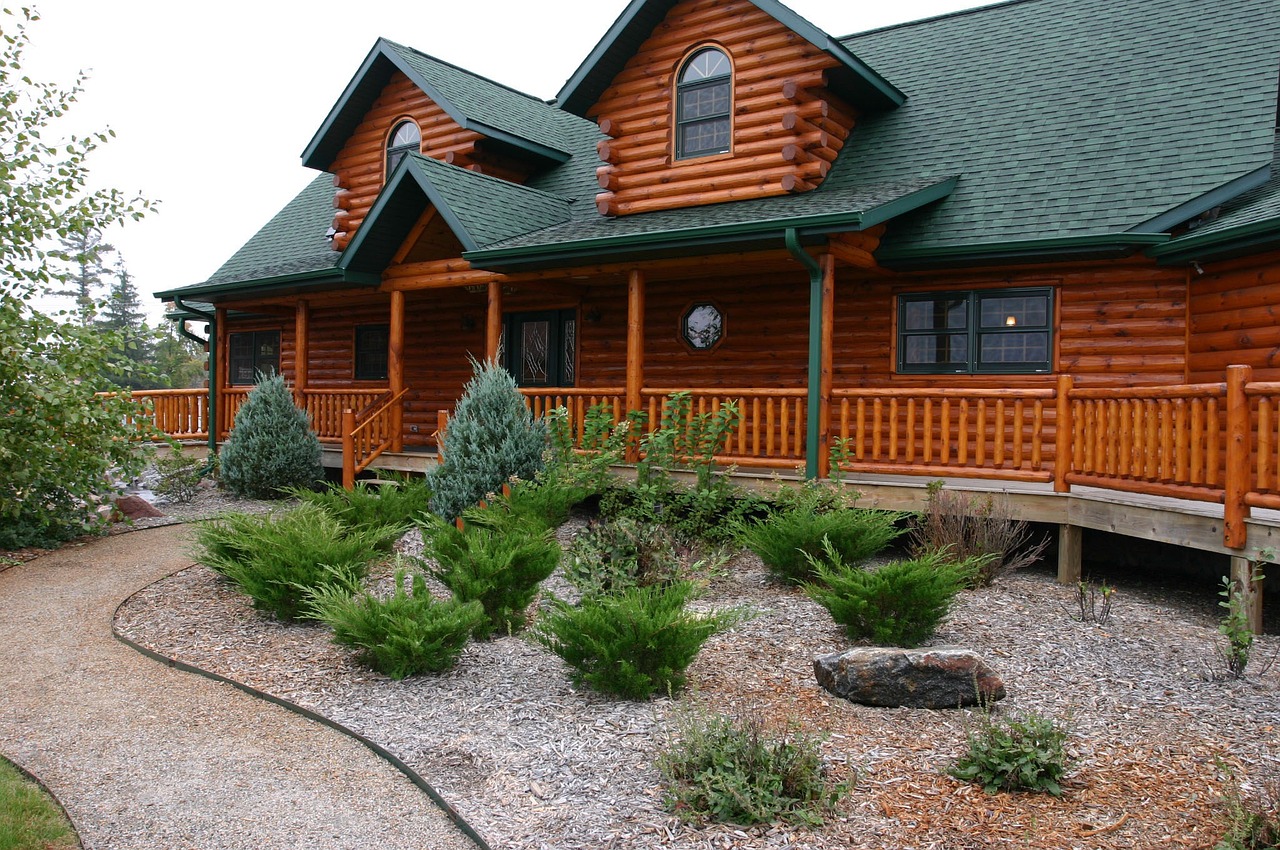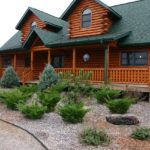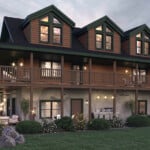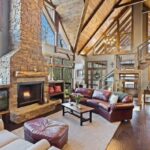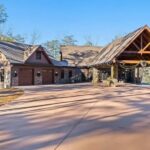Are Log Homes Energy Efficient? : A Sustainable Retreat
Log homes have a timeless charm and evoke images of cozy cabins nestled in the woods or by a serene lake. Beyond their aesthetic appeal, log homes have gained recognition for their energy-efficient properties. In an era where sustainability is paramount, these traditional structures offer more than just rustic charm; they are also a green choice for homeowners looking to reduce their carbon footprint and energy bills. In this article, we will explore the energy efficiency of log homes and why they are an eco-friendly choice for modern living.
The Thermal Mass Advantage
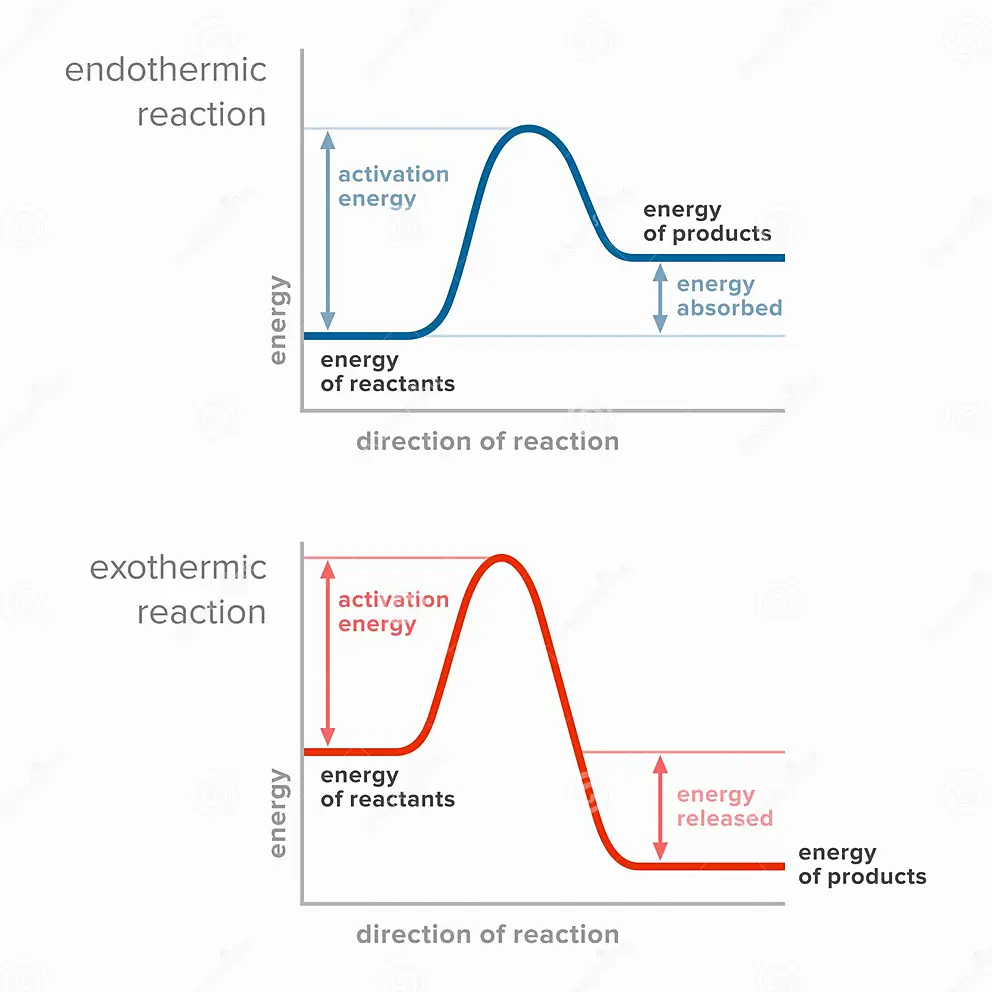 One of the key reasons log homes are energy-efficient is their use of natural materials, particularly wood. Wood has excellent thermal mass properties, which means it can absorb and store heat efficiently. During the day, when the sun’s rays warm the exterior walls of the log home, the wood absorbs and stores this heat. At night, when temperatures drop, the stored heat is slowly released, helping to maintain a stable indoor temperature. This reduces the need for additional heating or cooling systems, resulting in lower energy consumption and reduced utility bills.
One of the key reasons log homes are energy-efficient is their use of natural materials, particularly wood. Wood has excellent thermal mass properties, which means it can absorb and store heat efficiently. During the day, when the sun’s rays warm the exterior walls of the log home, the wood absorbs and stores this heat. At night, when temperatures drop, the stored heat is slowly released, helping to maintain a stable indoor temperature. This reduces the need for additional heating or cooling systems, resulting in lower energy consumption and reduced utility bills.
Natural Insulation
Log homes offer natural insulation thanks to the thickness of the logs used in construction. This natural insulation not only keeps the indoor temperature stable but also reduces the need for additional insulation materials such as fiberglass or foam. The thermal performance of logs can be attributed to their low thermal conductivity, meaning they are less likely to conduct heat, keeping the interior comfortable year-round.
Sustainable Building Material
The sustainability of log homes extends beyond their energy efficiency. Wood, when harvested responsibly, is a renewable and eco-friendly building material. Sustainable forestry practices ensure that for every tree cut down, several more are planted in its place, maintaining a healthy forest ecosystem. This sustainable approach to sourcing wood reduces the environmental impact of log home construction compared to other building materials that may require more energy-intensive manufacturing processes.
Tight Construction
Log homes are known for their tight construction. When properly assembled, logs fit snugly together, minimizing gaps and air leaks. This tight construction reduces drafts and heat loss, which is often a common issue in traditional homes. By eliminating these inefficiencies, log homes can maintain a consistent indoor temperature with less energy expenditure.
As Bo Sparks, our co-founder, always said, “If you build them right you can’t beat them, but if you don’t you can’t heat them.” As with any building, proper construction is the key.
Energy-Efficient Design
Log homes are often designed with energy efficiency in mind. Many log home builders incorporate features such as passive solar design, energy-efficient windows, and high-quality insulation to enhance their energy performance further. These design elements not only maximize the benefits of log construction but also help homeowners save on energy costs over the long term.
Maintenance and Durability
Log homes are renowned for their durability and longevity. When properly maintained, they can last for generations. This longevity reduces the need for frequent repairs and renovations, which can be both costly and resource-intensive. By opting for a log home, homeowners can contribute to a more sustainable lifestyle by reducing the environmental impact associated with frequent construction and demolition.
To Sum It Up:

In the pursuit of sustainable living, log homes stand out as an energy-efficient and eco-friendly housing option. Their use of natural materials, thermal mass properties, and tight construction all contribute to their exceptional energy efficiency. Additionally, their sustainable sourcing of wood and long-lasting durability make them a green choice for those who value environmentally responsible living.
While log homes may not be suitable for all regions or climates, their many advantages, both in terms of energy efficiency and sustainability, make them a great choice for homeowners seeking to reduce their environmental footprint while enjoying the timeless beauty of a log cabin retreat. As technology and construction methods continue to evolve, log homes will likely remain a relevant and eco-conscious option for the future of sustainable housing.


